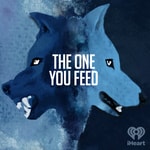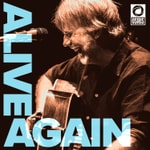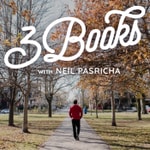The Tapes Archive – Détails, épisodes et analyse
Détails du podcast
Informations techniques et générales issues du flux RSS du podcast.

The Tapes Archive
Osiris Media
Fréquence : 1 épisode/22j. Total Éps: 72

Classements récents
Dernières positions dans les classements Apple Podcasts et Spotify.
Apple Podcasts
🇺🇸 États-Unis - musicInterviews
22/07/2025#90🇺🇸 États-Unis - musicInterviews
21/07/2025#59🇺🇸 États-Unis - musicInterviews
20/07/2025#82🇺🇸 États-Unis - musicInterviews
15/07/2025#99🇬🇧 Grande Bretagne - musicInterviews
14/07/2025#97🇨🇦 Canada - musicInterviews
13/07/2025#100🇬🇧 Grande Bretagne - musicInterviews
13/07/2025#72🇨🇦 Canada - musicInterviews
12/07/2025#99🇨🇦 Canada - musicInterviews
11/07/2025#81🇨🇦 Canada - musicInterviews
10/07/2025#55
Spotify
Aucun classement récent disponible
Liens partagés entre épisodes et podcasts
Liens présents dans les descriptions d'épisodes et autres podcasts les utilisant également.
See all- https://www.designmattersmedia.com/
22 partages
- https://www.osirispod.com
11 partages
- https://youtu.be/ui_kEJ7C3O0
4 partages
- https://youtu.be/QodtYVn7tDQ
1 partage
- https://youtu.be/CH8c4TKrIOo
1 partage
Qualité et score du flux RSS
Évaluation technique de la qualité et de la structure du flux RSS.
See allScore global : 63%
Historique des publications
Répartition mensuelle des publications d'épisodes au fil des années.
Ozzy Osbourne 1974 | The Sabbath Bloody Sabbath Interview
Épisode 67
mercredi 1 novembre 2023 • Durée 25:42
#66 David Lee Roth 2019 Interview
Épisode 66
mercredi 4 octobre 2023 • Durée 01:21:09
Steve Vai - His First 30 Years | Audio Documentary
mercredi 7 septembre 2022 • Durée 01:18:16
Black Sabbath - Master of Reality | The audio documentary
mercredi 4 mai 2022 • Durée 58:41
Black Sabbath - Sabotage | The audio documentary
samedi 22 janvier 2022 • Durée 31:27
#57 Joey Ramones (The Ramones) interview 1988
Épisode 57
mercredi 15 décembre 2021 • Durée 23:59
#56 Brad Delp (Boston) 1978 | The first known interview with Delp
Épisode 56
mercredi 10 novembre 2021 • Durée 27:02
#55 Adrian Belew (King Crimson) 1981 Interview
Épisode 55
mercredi 29 septembre 2021 • Durée 40:00
#54 Pete Townshend (The Who) 1996 Interview
Épisode 54
mercredi 15 septembre 2021 • Durée 45:47
#53 Roger Daltrey (The Who) 1994 Interview
Épisode 53
mercredi 1 septembre 2021 • Durée 20:49








